#interior design taiwan
Explore tagged Tumblr posts
Text



















Veil House, Kaohsiung, Taiwan,
Paperfarm Architects
#art#design#architecture#minimal#interior design#interiors#minimalism#veil#bricks#bricksnwall#taiwan#kaohsiung#paperfarm#clay bricks#facade
316 notes
·
View notes
Text







The Veil House, Taiwan - Paperfarm
#Paperfarm#architecture#design#building#modern architecture#interiors#minimal#house#house design#modern#brick#brick house#brick architecture#cool design#beautiful home#home decor#interior design#staircase#bedroom#balcony#terrace#courtyard#urban#infill#taiwan#east asia#architecture blog#beautiful buildings#facade#light and shadow
276 notes
·
View notes
Text
















Museumism Series Diagonal, Taipei, Taiwan,
Courtesy: Studio X4
#art#design#architecture#minimalism#interior#interiors#abstract#diagonal#taiwan#taipei#museumism#studio X4#pad#apartment#condo
107 notes
·
View notes
Text
youtube
3 notes
·
View notes
Text

15 notes
·
View notes
Text
重簷 - 眷村公共場域與舊宅再利用 建築設計 l 室內設計 l 台灣台中 l 2021-2022
設計者 / 孫如昀(Sun,Ru-Yun) & 張聞清(Zhang,Wen-Qing)
台中霧峰光復新村過去與現在的生活樣態 根據文獻資料紀載及現場實際觀察,發現過去的光復新村屬於居住行為的生活模式與現在的生活模式不同,過去的公共空間是居民們的娛樂聚集場所,因為地理位置距離台中市區較遠而形成露天老電影��戶外空間廣場,提供當地文化活動太極拳與過年節慶時的辦桌等活動場域。相對著現今,原公共空間已成為商業化又加蓋了新的建築物,破壞了原本大家擁有的公共空間,因此我們將人在此場域的各種行為所組成的生活記憶做為光復新村的設計概念方向。

youtube

youtube
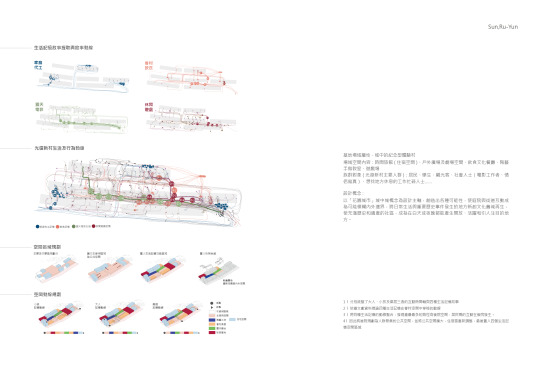







#interior design#architectural design#光復新村#Nature#cultural landscape#reuse design#Village Design#public space#graduation project#design#building#architecture#TAIWAN
2 notes
·
View notes
Text



2 notes
·
View notes
Text
just because we care miteigi.com
#taiwan#taipei#localization#japanfashion#japanstyle#fashion#style#apparel#japanbrand#woman#men#shopping#shop#kawaii shop#clothes#accessories#clothing#hats#shoes#homewares#home decor#kitchenaid#kitchenware#kitchen#bedroom#living room#bathroom#dining room#interior design#japanese
1 note
·
View note
Text
RedDot Hotel - Taiwan

0 notes
Text
Mazz Art Portfolio

0 notes
Text



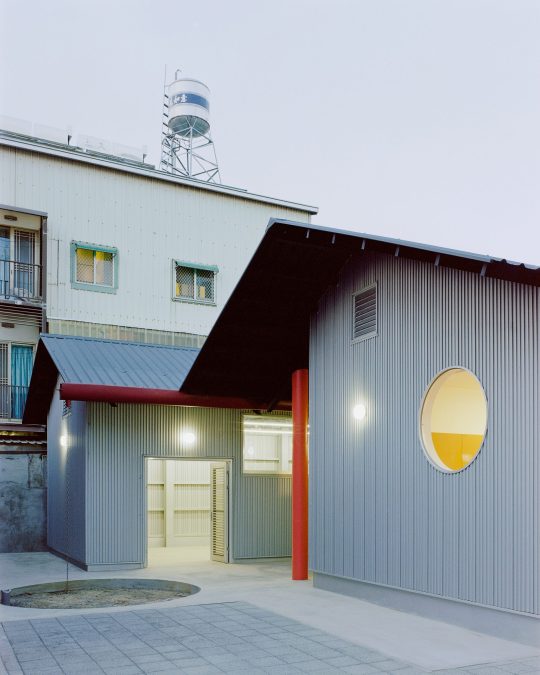



Double Roof House, Taiwan - Studio Tngtetshiu
#Studio Tngtetshiu#architecture#design#building#modern architecture#interiors#minimal#house#house design#modern#quirky#colourful#playful#minimalist#interior design#interior decor inspo#porthole#functionaldesign#kitchen#living room#steel frame#metal cladding#metal roofing#cool design#taiwan#courtyard#urban#city#design blog#small house
152 notes
·
View notes
Text







Study room by the Hillside, Taiwan,
Huibo (Shanghai) Architectural Design Office
#art#design#architecture#interior#interiors#bookcases#library#taiwan#warehouse#luxury house#luxury home#huibo#study room
95 notes
·
View notes
Text
This Week in BL - The Summer Games BLgin.
Organized, in each category, with ones I'm enjoying most at the top. Those Greeks did have that reputation for naked dudes rolling around together so I'm declaring it...
BL OLYMPICS!
I'll be passing out metals in various sporting events, as part of the weekly updates through mid August, just for funzies.
July 2024 Week 4
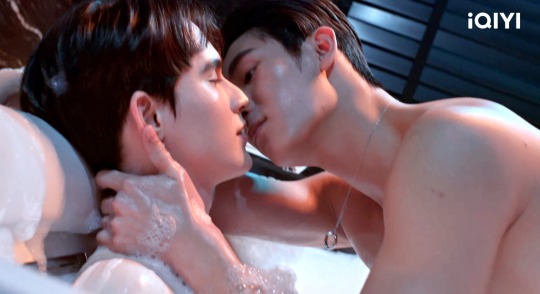
Ongoing Series - Thai
The Rebound (Weds Gaga) eps 9-10 of 12 - I guess mass murder is nothing next to having to raise funds for your basketball club. There were a lot of water sports in these eps (no not that kind). I’m not complaining. The street BB playoffs were fun. Frank is GOOD. I didn’t know he played. They aren’t using doubles for this. Meanwhile, it’s a bummer this one can’t be a poly romance.
Winner!
Gold in Handball
for that shower scene in ep 9 (also... ya know, DUNK TANKS)
Balls in hands of all types.
Briefly must chat about that intro/outro music. It's like Thai autotuned Stray Kids. Which means I kinda adore it.
Century of Love (Weds Gaga) eps 5-6 of 10 - I guess he’s had a long time to learn how to fight really really well. This is a fun show. It does occasionally feel like a bunch of gay boys playing dress up. I LIKE P’Third a lot. I hope he doesn’t turn out to be an actual baddie. I’m finding the music a little intrusive in these episodes. I love the deconstructed suits look, and the velvet blazer. Very 90s. The confessions scene was very cute. It’s a good thing Vee is so easy-going, because the last few months of his life have been truly insane. And now he’s queen of the castle? Still working his convenience store job?
I honestly thought we'd just get kisses halfway through not a full on sex scene. But it was very sweet and tender. Appreciated, boys, thanks. However it’s never a good sign when the sex scene is it at the halfway point, it just means there’s gonna be a lot of trauma to come.
(I gotta say every time Daou smiles he actually looks his age.)
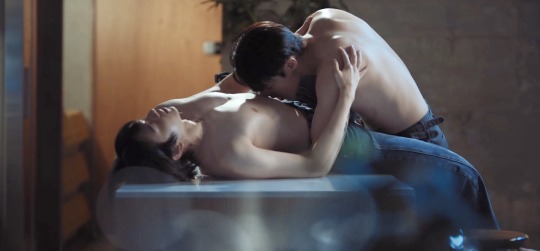
This Love Doesn't Have Long Beans (Fri iQIYI) ep 4 of 8 - I like them now. I mean as a pair of characters. I wasn’t really sold on the main couple until this episode, and now I’m interested (yes I am shallow). The boy with the glasses is definitely sus. I’m quite drunk, thus I have to say Sailub is the hottest thing on my screen right now. Metas's taste in interior design sucks. OK, that physical therapy session was sexy. I wasn’t sold at first, but now I love this side couple too.
Argh. SailubPon kiss so well. Also COUNTER LIFT!!!!
Silver in Weightlifting
Sunset X Vibes (Sat iQIYI) ep 7 of 12 - I’m the one who always says this stuff, but this pair might be the best at relationship heat. Let me try to explain. They are good at putting on screen the kind of NRE, want to bone, just really into each other physically and also connected and loving. It’s the way their bodies always arch towards each other. They’re very comfortable in each other’s space in a way that’s really rare to see out of Any BL country but Taiwan. I think they might be my favorite couple currently active. I don’t know how to put it except that
it looks like they want each other,
it looks like they like each other,
it looks like they’re into each other,
and it looks like they GET each other.
It’s nice to see on screen. The plots/stories/narratives that they're given aren’t doing them any favors, but man they’re a good pair. Meanwhile, was I screaming the whole time don’t rip the sample of the custom piece? Yes I was. But it was still sexy.
Sam getting discovered was fun! Yo is gonna burn his arse good.

My Love Mix-Up Th (Fri YT) ep 8 of 12 - Okay! Officially boyfriends. I almost like the friendship btw Atom and Mudmee better than the romances. But they all so cute.
The Trainee (Sun YouTube) ep 4 of 12 - I hate the gf intern so much. I think she is past redemption now - time for death. What is it they say about ADs? they do all the work, for none of the credit but all of the blame.
Knock Knock Boys (Thurs Gaga) ep 10 of 12 - I guess Peak’s dad really is that awful. Jane is the beard? Got it. The show got suddenly quite sweet and complex. Where did that come from? Meanwhile ,Almond + Latte + sex education is awesome. Great trope we rarely get in BL.
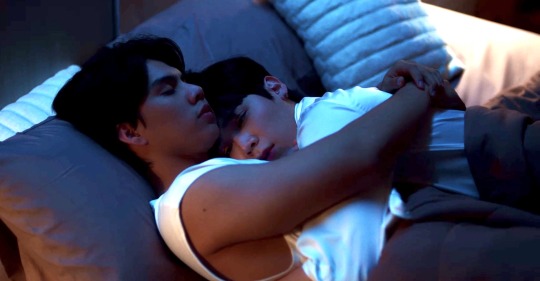
Love Sea (Sun iQIYI) ep 7 of 10 - Look, what’s really annoying me is that I am neither upset nor pleased with the show. I like to be driven one way or the other by Meme. Trash watch here. (delayed this week, I can't face it)
I Saw You in My Dream (Weds Gaga) ep 1-2 of 12 - Out the gate I don’t like it. I don’t really like the teasing thing and the acting is poor. That said, neck kisses in the very first episode do make me happy. So I’m gonna keep watching. As for ep 2, I like the sides, and we have gay brothers trope activated. I also like the paranormal element, it adds some much-needed tension, but it is still a little slow (typical of a pulp).
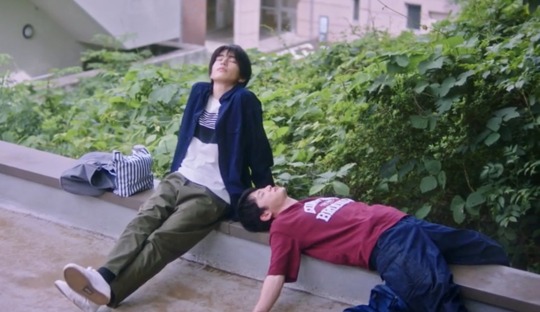
Ongoing Series - Not Thai
I Hear the Sunspot AKA Hidamari ga Kikoeru (Japan Weds Gaga) ep 6 of 10 - I like our poor lost puppy slowly figuring out what’s going on. It’s so elegantly done. Also, the the boy begs his quiet seme to SAY something, you know he’s gonna DO something instead.
I could have done wihtout the pan around the head kiss. We over that, 8 years ago.
Takara's Treasure AKA Takara No Vidro (Japan Mon Gaga) ep 4 of 10 - Why don’t I like this show? I had to think about it quite a bit. It’s the power differential. I never enjoy it when the character with less power is the one doing the pursuing, it comes off as too desperate or something. In this case he is: from the country, poor, and younger, It just makes Takara’s dismissive attitude and snobbery unpleasant to watch. Also, you know me, =/= obsessive stalker behavior.
It's airing but...
Bad Guy (Korea YT) - yeah, erm, no thank you.
4 Minutes (Thai Netflix/Grey) ep... - Great, a rich boy studying business at uni, suddenly gains the supernatural power to see four minutes into the future. I try to catch up next week.
I have a source, but I simply didn’t have time to watch it. So sorry. Too much traveling too much BL to keep up with. A perfect conflation of conflicting priorities.
Meet You at the Blossom (China) - it's your funeral (or, more likely, one of the main characters'). You can argue but... statistics. You know my feelings on this matter. MY BLOG, remember?

64.media.tumblr.com
In case you missed it
The Time of Fever AKA Unintentional Love Story 2 (Korea movie) trailer IS COMING IN SEPTEMBER!!!!
Next Week Looks Like This:

Upcoming BLs for 2024 are listed here. This list is not kept updated, so please leave a comment if you know something new or RP with additions.
Coming Up Next!
7/29 Battle of the Writers (Thai ????) - trailer here, TutorYim return, and while I adore them, I really hope this is better than Middleman's Love. Won't be hard. However: the premise? Ugh. Something something authors fighting - save me. Why don't writers understand that nothing is more boring than writers?
8/4 Sugar Dog Life (Japan Sun ????) 10 eps - OMG a uni student who looks too young and a... COP. GAH. The subversion and kink of it all. Please Gaga pick this one up? They made it for US.
8/7 Cosmetic Playlover (Japan Weds ????) 8 eps - office romance around the makeup counter featuring a younger seme and sex by blackmail. I am intrigued. DFTUJ (don't fuck this up, Japan).
8/8 Monster Next Door (Thai Thurs WeTV ) 12 eps - I am so DAMN excited to see Big finally lead a BL. I can't even with this, one of my most anticipated of this year. He's a great kisser ya'll, he's kissed a lot of boys as second lead. I can't WAIT.
8/12 First Note Of Love (Taiwan Mon Gaga) 12 eps - About a singer with stage fright and his timid fan stars Charles (H4 the puppy one) and Michael Chang (the youngster in My Tooth Your Love), plus side couple featuring a Thai actor Jame (Koh in Gen Y) and Liu Min Ting (of Guardian fame). What a damn tean. I can't wait. With thier powers combined!
8/16 The Last Time (Thai Fri YT) ? eps - Convoluted story of loss and possible reincarnation or something.
8/22 The Paradise of Thorns (Thai movie) theater release - Jeff Satur is back but this does not look like a BL (the gay lover's death is the inciting event). More in Goodbye Mother vein. Looks dark and dramatic. He opposite and extremely well known actor Toey Pongsakorn who has never done gay before.
Addicted Heroin (Thailand adaptation) is also supposed to release this month. GIVE IT TOO MEEEEEE. I don't care about anything else but August back on my screen. It's been almost a decade since he did BL.
THIS WEEK’S BEST MOMENTS
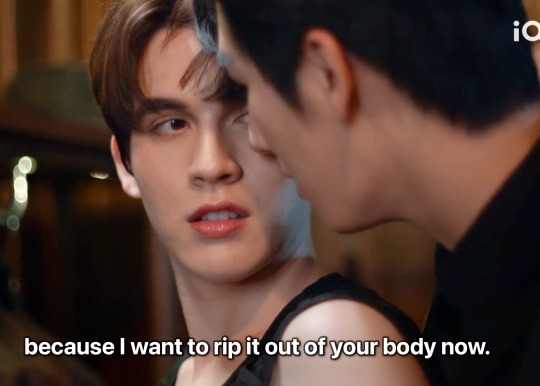
This week's adventures in caption "out of" and "off" are not the same thing. This is an uncomfortable thought.
I'm so tired I'm seeing double. This is all you get.
(Last week)
Streaming services are listed by how I (usually) watch, which is with a USA based IP, and often offset by a day because time zones are a pain.
The tag BLigade: @doorajar @solitaryandwandering @my-rose-tinted-glasses @babymbbatinygirl @babymbbatinygirl @isisanna-blog @mmastertheone @pickletrip @aliceisathome @urikawa-miyuki @tokillamonger @sunflower-positiiivity @rocketturtle4 @blglplus @anythinggoesintheshire @everlightly @renafire @mestizashinrin @bl-bam-beyond @small-dark-and-delicious @saezurumurmurs
Sigh, Tumblr in it's infinite wisdom doesn't like too many tags.
Sports in Play (the jokes write themselves) )
Boxing
Breaking
(That's Not) Cricket
Diving (yes, for that)
Fencing (yes, with those)
Handball (exactly what it says, no, read the word.. again)
Rhythmic Gymnastics (obvs)
Squash (snicker)
Surfing
Swimming
Trampoline
Weightlifting
Wrestling
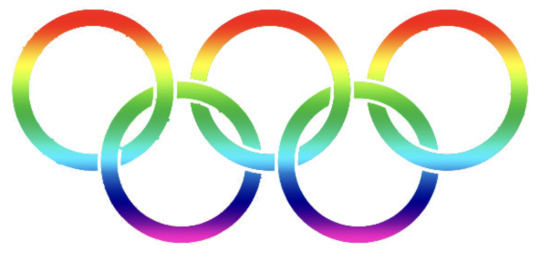
#this week in BL#BL updates#The Rebound the series#Wandee Goodday review#We Are the series#We Are review#sunset x vibes#My Love Mix-Up Th#Century of Love#This Love Doesn't Have Long Beans#The Traineee the series#Love Sea the series#Knock Knock Boys#I Hear the Sunspot#Hidamari ga Kikoeru#Takara's Treasure#Takara No Vidro#upcoming BL#BL news#BL reviews#BL gossip#Thai BL#Japanese BL#live action yaoi#Koren BL#BL starting soon#BL coming soon
160 notes
·
View notes
Note
With 23.5 finally coming out, the people are rejoicing at finally getting a high profile gl from GMMTV. But there have already been several gls airing this year, including my fav TsukuTabe, that have been flying under the radar with fandom, and in general there are more gls already out there than folks seem to think. I just know you have a list of all the gls we should be watching, please share with the class!
Thank you for the ask! How did you know I had a draft of GL recs to make at some point? [Trick question, I mentioned it to you.]
It may seem like I'm out here hating on GL because i've made a couple of negative reviews of recently airing series recently (Love Senior and Chaser Game W in case you're curious) but I actually have lots of GL that I love and that I wish were better known! Thanks for sending this ask so I am inspired to actually finish it! I've limited myself to series so that I could keep the list and this post to a reasonable length. Where possible I've listed where you can find each of these and included a link. And I've included an 'elevator pitch' summary but I am NOT in marketing for a reason, so please don't roast me too hard for my terrible comparisons. Alright, enough waffling!
Twig's GL Rec List
She Loves to Cook and She Loves to Eat S1 & 2 (Japan, 2022 & 2024, both seasons fansubbed by @furritsubs; if you need help accessing this show feel free to DM me!)

Elevator pitch: Our Dining Table with lesbians and an even slower burn. Watch for beautiful food, acespec rep, mental health and therapy rep
What might turn some off: Extremely low heat, and quite slow-moving; warning for a disordered eating and family trauma plot (v gently handled)
Let's start with the one you've already mentioned. This is a heartwarming slice-of-life slow burn in which an autismspec-coded woman who likes to eat is invited by her neighbour, a femme acespec woman who loves to cook, to come and eat her food. It starts from a very practical place (when you love making food you need someone to help eat it), but their relationship grows as they spend more time together. The story follows them as they both move towards self-actualization in several ways: as a lesbian, as asexual, at work, with their families, with their friends, with each other. This show is so careful to say the important words aloud. And there is so much delicious cooking! Each episode highlights a particular recipe, and the food porn is real. Do not watch while hungry, but definitely watch. The found famiy vibes in this one one are also immaculate.
She Makes My Heart Flutter (Korea, 2022, YouTube)
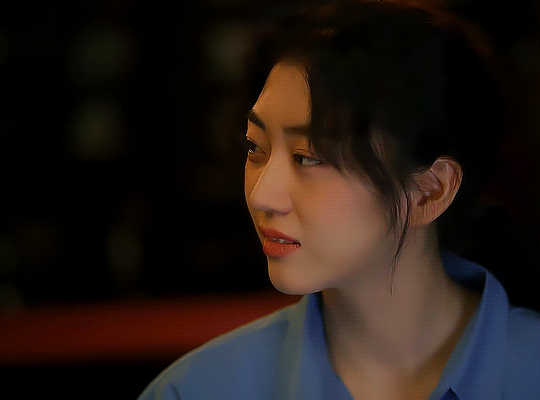
Elevator pitch: Younger lesbian friend group tries to help out (slightly) older lesbian bar owner with mixed success. I can't think of a good BL equivalent, The Moment Since feels the closest with its similar bartender/patron romance
What might turn some off: Comedic tone; short runtime; struggles with being closeted
This is a gem of a miniseries about a bar owner and an interior designer who smoulder at one another while an intrepid group of younger bar regulars (including the bar owner's neice) meddle. This series is really cute, solid, and full of sapphics! Once again found family vibes are immaculate (you may sense a theme in my faves). Run don't walk.
Fragrance of the First Flower (Taiwan, 2021, GagaOOLala)
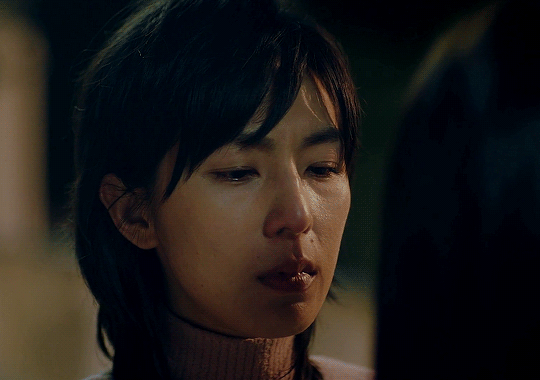
Elevator pitch: Right-person-wrong-time/second chance romance; tonally is a little like We Best Love 2: Fighting Mr. 2nd but with an ambiguous ending.
What might turn you off: Medium heat, second chance romance means they break up once, internalized homophobia, adultery/cheating, at one point there's a creepy dude, child with autism (depicted well), ambiguous ending
At its core this is a story of a woman who can't stop getting in the way of her own happiness. This series is a little more sad than the rest of this rec list but I couldn't not include it because this relationship is so poignant. Plus there's a s2 that supposedly is to come out in 2024 so maybe we'll get our happy ending after all?
Love Greater Than or Equal to 70 Degrees C (Korea, 2019, YouTube)

Elevator pitch: Ingredients but with lesbians staring at one another over beautiful tea pairings! What more could you ask for?
What might turn you off: Low heat; short runtime; ambiguous ending; like Ingredients this is essentially a long ad for the café it's filmed at.
This is a Korean miniseries about passionate tea sommeliers making really fancy tea while staring at one another a LOT. Perfect sapphic representation, 10/10 no notes. This one packs a lot of the drama tropes into its short runtime, so even though it's short it's full of butterfly-inspiring moments.
Sleep With Me (Philippines, 2022, GagaOOLala/iWantTFC/Netflix w/VPN set to Philippines)

Elevator pitch: The Truth About Cats and Dogs but the self esteem issues are handled without catfishing. BL equivalent: Hmmm. Closest I can think of is Gaya Sa Pelikula.
What might turn you off: There's some ableism (treated as such) in this show; Open ending.
Stellar GL between a late night radio DJ and an insomniac who listens to her show. One of the main couple is a wheelchair user and the show tackles ablelism and navigating disability in relationship as well as feelings of inadequacy in a relationship and how that manifests as interpersonal conflict.
Our Relationship Ended Before it Began (Korea, 2022, YouTube)

Elevator Pitch: Along the lines of I Cannot Reach You; the show gives both perspectives and they are held back by queer angst.
What might turn you off: No kiss (but they make it very clear both want to kiss), internalized homophobia
Really sweet miniseries about having a crush and being afraid of being hurt so you don't actually make a move. I really like the way the girl who has not dated a girl before defaults to gender roles and it throws the more experienced lesbian lol I also really like the way this show makes clear that both of them are waiting for a kiss, and that if you get in your head about things, it can get in the way of your own happiness!
Pearl Next Door (Philippines, 2020, Youtube)

Elevator Pitch: Gameboys but with lesbian vloggers.
What might turn you off: Love triangle, lots of teasing but low heat in the end, a lot of (good) conversations about mental health issues, ambiguous ending
This is the GL spinoff to Gameboys, starring Pearl from Gameboys. Pearl ends up being fought over by the two gorgeous women in the gif, an old love and a new. I love the queer friendships in this story as much as the relationships. I will say it's an open ending (that felt a bit like the showrunners didn't want to decide between ships) and definitely the love triangle features prominently but even in the face of these aspects that would normally turn me off a series I had a good time. The characters and interpersonal conflicts feel very real, and are allowed to be complex even when the show tone is comedic.
Dear Uranus (Taiwan, 2021, YouTube)

Elevator Pitch: Schoolgirl ensemble GL; a little like My School President but without the singing.
What might turn you off: Short runtime; ambiguous ending; a little bit of bullying; very standard romance trope execution
The first Taiwanese GL miniseries, this series was produced by a Taiwanese lesbian couple (Rabbit & Wolf)! Lots of excellent drama tropes, and incredibly gorgeous women (I think the entire watching audience fell in love with Erol.
Lily Fever (Korea, 2015, YouTube)

Elevator pitch: Complete crack; YYY but with more kissing and frankly an even less coherent story.
What might turn you off: The lack of coherent plot; less a romance and more a very thirsty lesbian kissing everyone she can
This miniseries is utter chaos. Nothing really makes sense, it's all just random excuses to cause very suggestive moments (and kissing) to happen. I love so much how this series depicts women being so absolutely thirsty for one another (and yes that date isn't a typo, this series is ~9 years old). Not an "happy ever after" ending but it really isn't that kind of story.
Chasing Sunsets (Philippines, 2020, YouTube)
Elevator pitch: Ocean Likes Me with lesbians. Resort romance with a mental health twist.
What might turn you off: Some of the mental health stuff gets intense, this was filmed in 2020 so the pandemic features heavily; hopeful but slightly ambiguous ending.
A complex story from the Philippines covering mental health and finding yourself. A woman shows up to a resort and befriends one of the women running the resort. They get closer as they spend time together, and the resort owner realizes something is off. There's also a BL side couple in this series.
Show Me Love (Thai, 2023, YouTube)

Elevator pitch: A little like My Day the series with lesbians, in that they work together and fall in love and it's full of tropes
What might turn you off: The advertising for the Miss Grand competition, there is some bullying and cheating (though way less than I was expecting tbh), not a lot actually happens, the editing gets a bit wonky at the end
This is essentially a massive ad for the Miss Grand Thailand competition; this GL was produced by the same company that produces that competition, and the stars are mostly Miss Grand competitors. The main pairing were shipped in the actual competition, and the company decided to make a GL about them. It's very slow paced and low-stakes, and there are better kisses than I expected considering everything I just said about where this show came from. There are a lot of cute moments!
Girlfriend Project (Korea, 2022, YouTube)

Elevator Pitch: Love Class with lesbians
What might turn you off: One of the leads is kind of mean in that pgitail-pulling way? It ends abruptly (but happily)
This is a short miniseries about two girls paired in a class that are assigned to "date". The chemistry is chemistrying. And there is a kiss (a good kiss, and a tiptoes kiss at that!). This show also has one of my favourite tropes, in which someone who seems like a pushover stands up for themselves and their partner finds it very attractive. For the record, in this show they are watching another GL by the same company, Love Tech.
Lulu (Philippines, 2022, Vivamax/grey)

Elevator Pitch: Present Perfect with lesbians (but with a better ending).
What might turn you off: Depictions of panic attacks, brief depiction of drowning, pandemic lockdowns, illness, exes, waffling, happy but open ending (which I actually liked for this story)
Two women trying to move on from the garbage in their lives meet at the beach of a B&B (where one saves the other from drowning) and become one another's company during their escape and then something more. They both have baggage that seems determined to keep them apart even as they continue to be drawn together. In the end, they decide to stick it out and see where they end up, with no guarantee of happily ever after, which I found very sweet. Requires either a VivaMax account or searching the grey for it, but it's worth the effort (check MyDramaList comments for suggestions on where to find it). Plus one of the leads has a cactus as a pet.
Welcome to the Lesbian Bar (Korea, 2023, YouTube)
Elevator Pitch: A little like Fudanshi Bartender but without the fudanshi bartender and all of the bar patrons are lesbians lol
What might turn you off: Short, can get a little bit preachy, abrupt ending
Cute short series with different very stories every episode as different patrons visit the bar. The stories range from women who have been together for awhile, to people meeting from an online app for the first time, to someone visiting a lesbian bar for the first time; and yet the story all weaves together in a way that's satisfying though ends abruptly. Includes some solid marriage equality propaganda.
GAP the Series (Thai, 2022, YouTube)

Elevator Pitch: Kind of the vibes of Together with Me but lesbians and in an office instead of school. Angry boss falls for charming new intern and
What might turn you off: This one is the highest heat of all these recs; homophobia especially amongst family, brief depictions of death by car, brief mentions of suicide, cheating, bullying, abuse of power in the office.
A list would not be complete without this one! Honestly the plot is a bit wobbly but the show is a lot of fun. The girls are very cute, the feelings and tension builds really well between them, the friend group is excellent, and in the special we get a wedding.
---
The rest of these have caveats of one kind or another, but i couldn't leave them off a rec list, so here are the side couples and censored stories that are still worth your time anyway (I might do a separate more detailed post for these, as well as for films, one day if there's interest):
Nevertheless (GL side; Korean, 2021, Netflix) Not sure it's worth watching a whole kdrama for side lesbians? Search soljiwan on youtube. They are great. Even the Netflix account stans them. I watched this (ngl, I watched the SolJiwan cut) as it aired and was constantly braced for it to let us down but it did not! A really good friends-to-lovers story.
Friend Zone 2: Dangerous Area (GL side; Thailand, 2019, YouTube): These sapphics are messy and I love them. Decent conversation about dating someone with mental health issues in this series, and they're one of the only couples in this ensemble to get a happy ending. If you're just watching the lesbian couple (which you can, their story is pretty self-contained) you don't need to have seen s1.
Six Survivors (GL side; Japan, 2022, Viki) This show is a horror comedy and it is SO MUCH FUN. Warning for zombies and blood, but way less than you might think. One of the eponymous 6 survivors is a lesbian who keeps trying to convert them to veganism lol. If you watched Chaser Game W you'll recognize one of the actresses in this, the lead actress is from Kamisama no Ekohiiki, and one of the guys is from the prequel series His as well as I Want to See Only You! And yes there is a kiss. Also a surprising number of Mallrats references. Not for people who can't handle gore or relationships being complicated/not a "true love" story/ambiguous ending.
Kamisama no Ekohiiki (complicated question of is it GL in parts, Japan, 2021, furritsubs once again coming through to save the day) This one is a bit complex because there's bodyswap, but the girl who falls for the bodyswapped boy-in-a-girl's-body is clear that she is only interested in the girl. One of the better bodyswap stories because the bodyswap is not a secret for very long, so instead there's a lot of introspection about what gender means and who/what they are attracted to. Feels wrong to call this GL, necessarily, but it's very queer.
Couple of Mirrors (Censored GL, China, 2021, Viki) Story of a rich girl and her assassin girlfriend. This production did an amazing job getting away with what they could, just don't watch the last five minutes and we've got essentially a happy lesbian family.
Legend of Yunze (Censored GL, China, 2021, @douqi7s) Very cute very low budget xianxia miniseries with two seasons and a special. The special is set in modern times in a future lifetime so if you want a cute censored-but-clearly-a-soulmate-love-story this is the one for you. Don't be thrown off by the weird cuts/abrupt episode endings, that's in line with cdramas in general.
Led Astray by Love (Censored GL, China, 2021, @douqi7s) A very fun and adorable isekai story in which a modern day girl is transported to a wuxia novel setting and has to figure out how to get home, and gets romanced by the princess along the way.
And a few additional links for people who even more content:
My Indian sapphic webseries rec list
My suggestions for content with toms (Thai category that's similar to but not exactly the same as butch lesbians) in response to this post.
This really good GL MyDramaList list (not made by me!) lists what seems to be everything I've mentioned and about 200 more. Even I haven't seen a few of these!
My YouTube playlist of sapphic content: This includes anything I stumble across or find in my searches, a lot of music videos and random shorts as well as some microseries and miniseries that I don't consider GL but are WLW/sapphic in addition to true "GL" content. For serialized content, I add just the first ep. A complete mess, but you can trawl through to find stuff to watch, like Hetero!
SOONOTSUE: The same producers of She Makes My Heart Flutter have other short series on their channel worth checking out; if you liked that one, try Out of Breath!
Shakeshoulder: Thai YouTube producers of very pulpy (read: low budget and dramatic plots) shorts
FuFuKnows: This YouTube channel is owned by a gay Taiwanese couple that produces shorts every week, including some with GL mains and sides. These are very low budget but cover a whole swath of queer themes.
@douqi7s is a godsend providing subtitles for all kinds of content, including sapphic shorts and more series than I've listed here. Check their tumblr for links to all of their content; A Practical Guide to Being a Superstar's Assistant has one of the best setups to giving us great moments in the guise of something else so that they get past censorship I've ever seen; I also recommend The Vampires if you're into genre fiction, as well as Legend of Yunqian if you enjoyed the xianxia parts of Legend of Yunze. @wlwcatalogue did an excellent summary of many of the non-wuxia options here.
Quick pitch for the streaming platform GagaOOLala; it's affordable, has a ton of content, including a whack of GLs (originals, license series, and a ton of shorts), and is run by queer people out of Taiwan who care about good quality queer content being made and having an audience, and using the soft power from those successful series to support social change. And if you can't afford a subscription it's worth checking out what they have for free, they open up temporary free access to some things for various events throughout the year.
In searching for gifs for this post I found fellow tumblr user @drowningparty 's WLW compendium list; they've listed more series and films so check it out if you still need more content!
*wipes sweat off brow* that should be enough to be getting on with, but it's really just the tip of the iceberg! If there's something specific you want to see with sapphics let me know and I can tell you if I know it exists. Anyway, I hope this gives you and everyone else a taste of what all is out there! I of course always want more, I am serious about being a sapphic dragon hoarding every crumb i can get my lizardy hands on, but I do think what we have should also be appreciated more. If I missed one of your faves, please tell me!
#gl series#gl recs#sapphic media#media recs#tsukuritai onna to tabetai onna#she loves to cook and she loves to eat#she makes my heart flutter#fragrance of the first flower#love greater than or equal to 70 degrees C#sleep with me the series#our relationship ended before it began#pearl next door#dear uranus#chasing sunsets#show me love#girlfriend project#lulu the series#welcome to the lesbian bar#gap the series#nevertheless the series#friend zone 2: dangerous area#six survivors#kamisama no ekohiiki#couple of mirrors#legend of yunze#led astray by love#lily fever#thank you for the ask!#ask game#long post
401 notes
·
View notes
Text
Exploration-touch,look,body interaction 室內設計 l 幼兒園教育空間 l 台灣彰化 l 2021
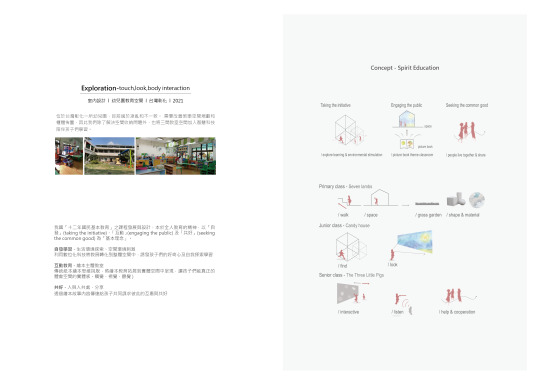


#interior design#kindergarten classroom#children#interactive design#kindergarten#classroom design#design#TAIWAN
1 note
·
View note
